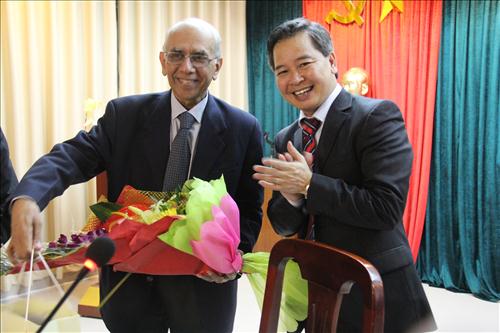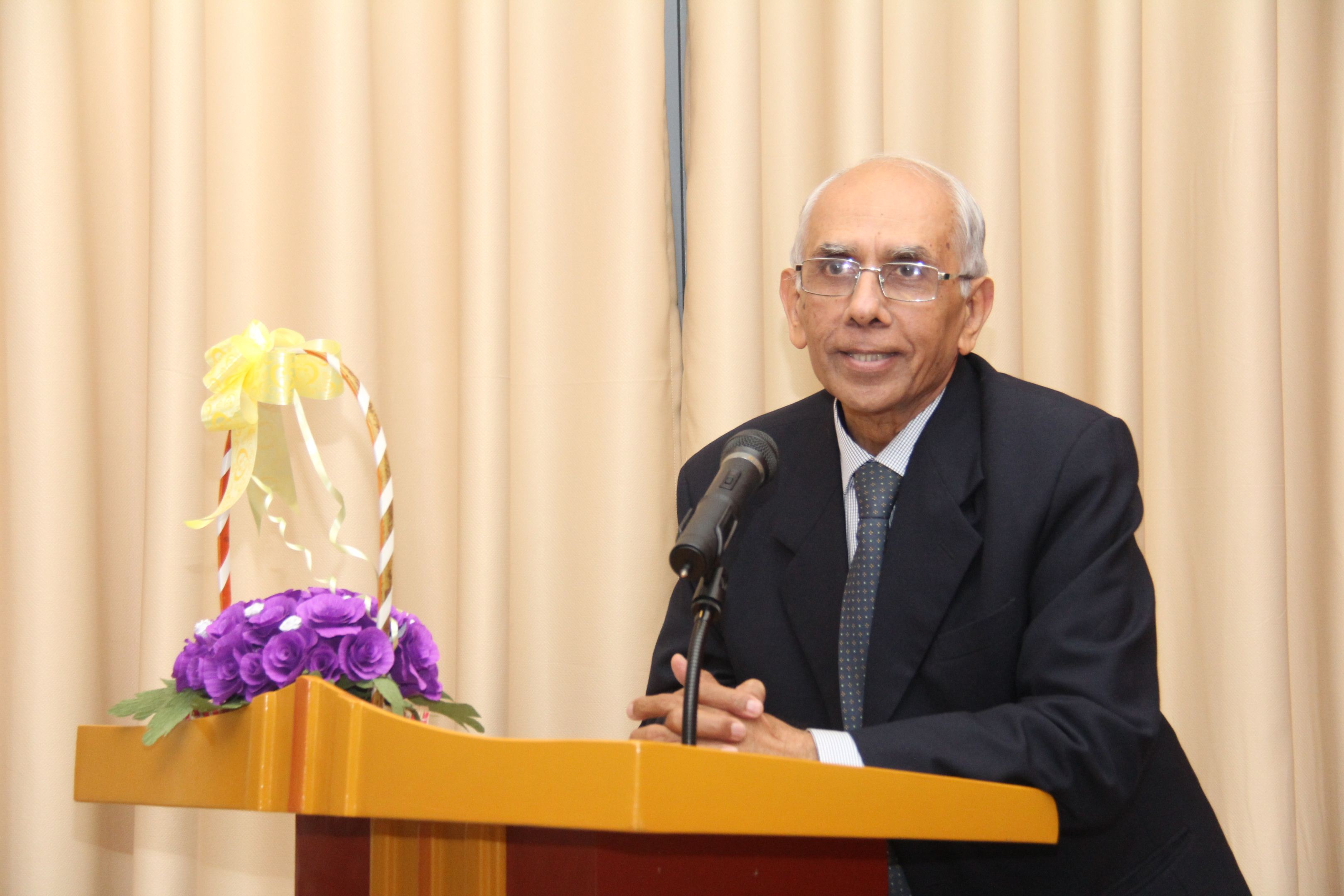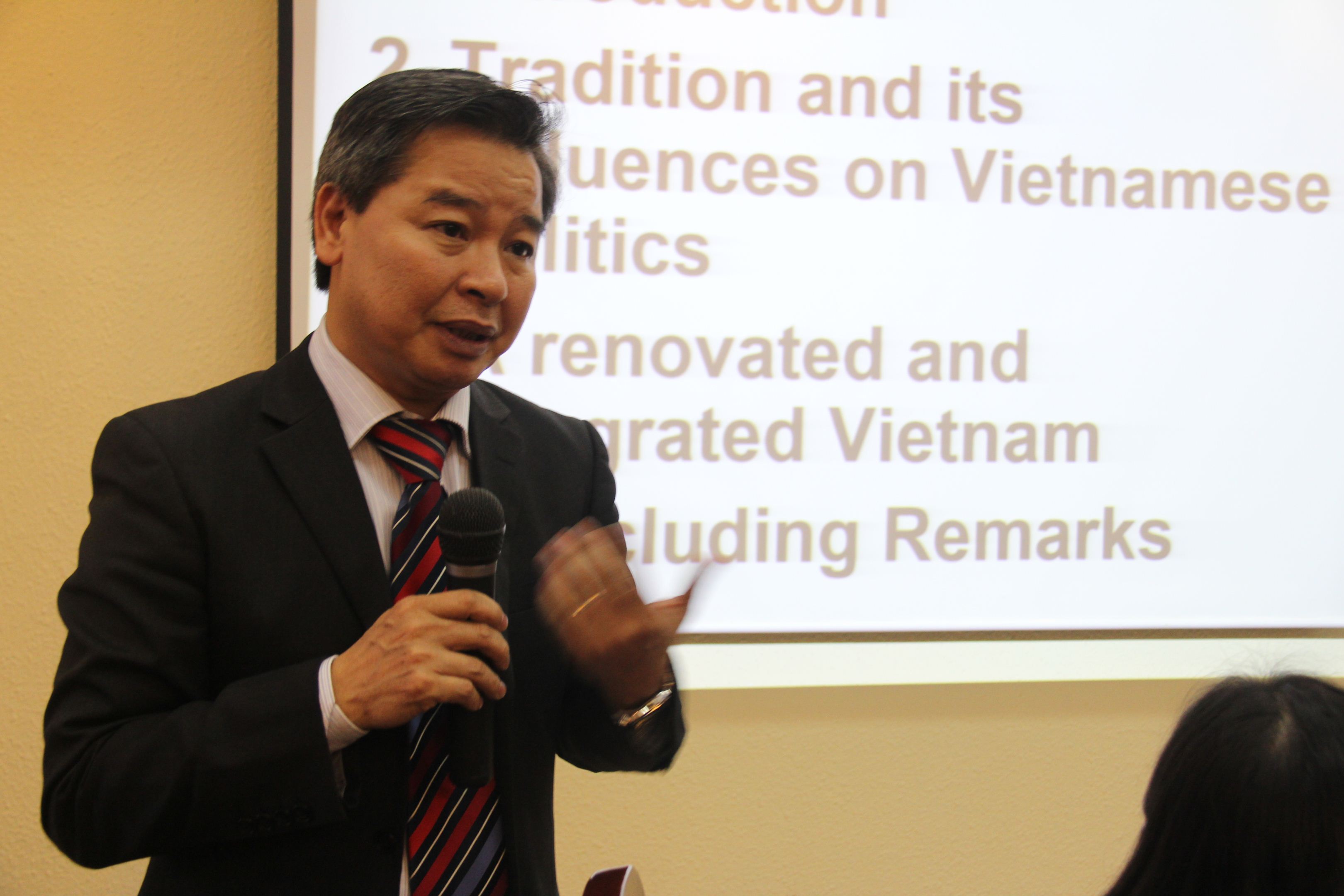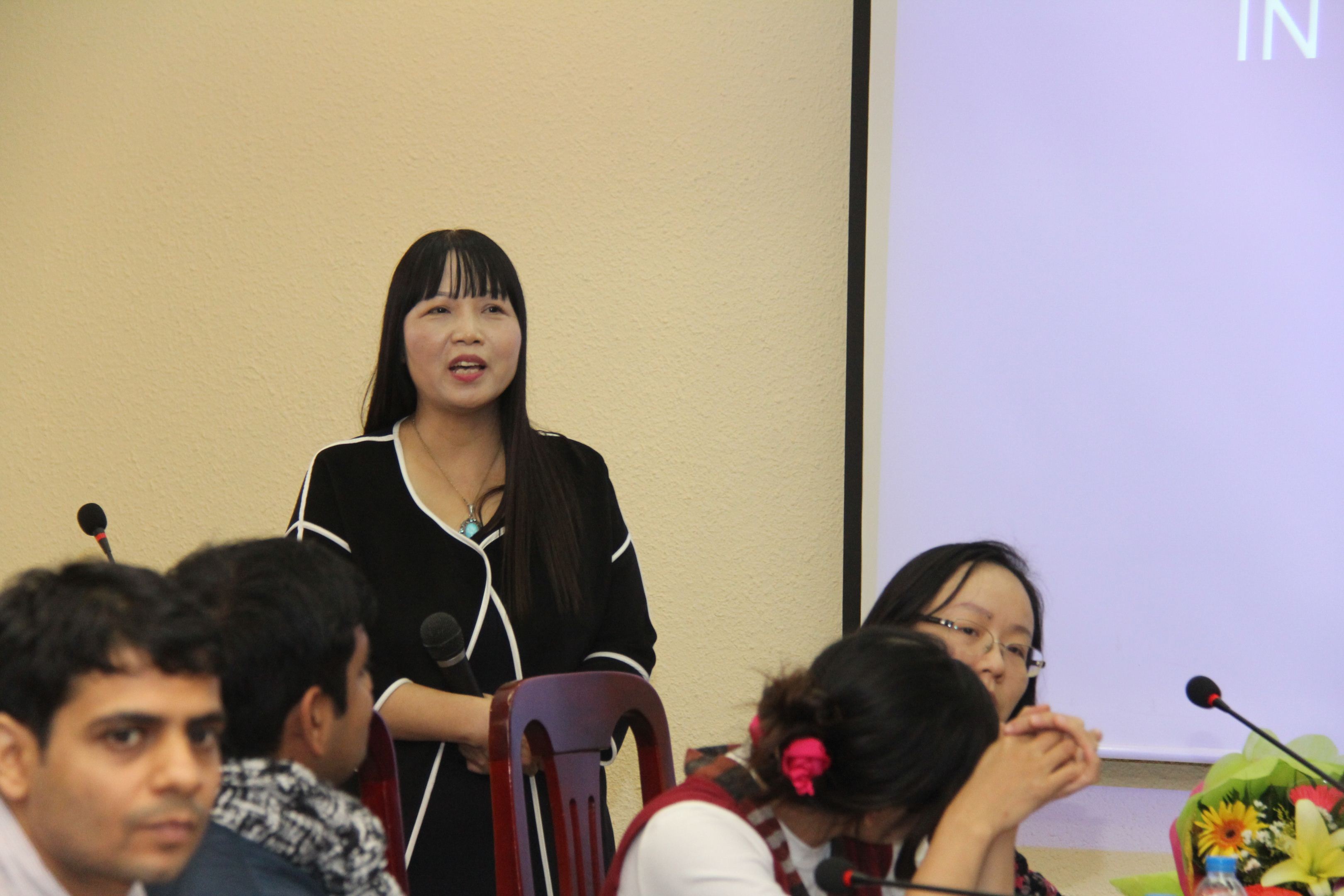
At the beginning of the exchange, Mr. Neelakantan Ravi shared that the exchange was a good opportunity to connect Indian and Vietnamese students. According to the former Indian Ambassador to Vietnam, the relationship between Vietnam and India is an example of a long-standing and enduring relationship between two countries with many common historical and cultural features, when both countries experienced struggles for national independence. The relationship between the two countries began a long time ago in the history of the struggle for independence and has lasted until today. According to Mr. Neelakantan Ravi, the Vietnam-India relationship in the past is a solid foundation for today's generation to continue to promote and develop. Especially, when today's young generation lives in a peaceful environment and has access to many new technologies, the exchange and connection with each other will become more convenient and easier. The former Indian Ambassador also said that the Indian government strongly encourages exchanges so that students from both countries can learn from each other and learn about the culture, history and society of India and Vietnam.

Mr. Neelakantan Ravi encourages exchange and learning between Vietnamese and Indian students
In response, Associate Professor Dr. Pham Quang Minh expressed his gratitude to Mr. Neelakantan Ravi for taking the time to visit the University of Social Sciences and Humanities and especially the Faculty of Oriental Studies. The Vice President said that within 10 years of its establishment, the Department of Indology of the Faculty of Oriental Studies has achieved many successes with the help of the Indian Embassy, as well as implementing many cooperation programs with the Indian Embassy such as scholar and student exchange programs, PhD and Master training, and performing arts programs by Indian artists. Through these activities, the Department of Indology, the Faculty of Oriental Studies as well as the University of Social Sciences and Humanities in general have the opportunity to expand their understanding and vision of India in all fields. Therefore, welcoming the former Indian Ambassador today is a manifestation of the highly developed friendship between the University of Social Sciences and Humanities and its Indian partners in particular, as well as between Vietnam and India in general.

Associate Professor Dr. Pham Quang Minh introduces Vietnam to Indian students
Next, Associate Professor Dr. Pham Quang Minh gave a presentation on “Economic and political development in Vietnam”. Through the presentation, the Vice President briefly introduced the geographical features, economic history, political system and cultural characteristics of Vietnam to students of the Bangalore Institute of Management. Historically, Vietnam has gone through many periods of division due to invasions by external forces and it was not until 1975 that it was truly unified. However, the Vietnamese people have common characteristics such as wet rice agricultural culture, village culture, the influence of Confucianism in culture and society as well as the tradition of fighting foreign invaders. Therefore, it can be said that Vietnam is a unified and united country. Since 1986, when the Doi Moi policy was born, Vietnam has changed completely through economic reform, political innovation, cultural restoration and pursuing a policy of multilateralization and diversification. Economic growth, foreign investment and poverty reduction have made progress. In its relations with other Asian countries such as India, Vietnam wants to share similarities and learn from its differences.

Associate Professor Dr. Do Thu Ha presented on Vietnamese cultural characteristics
Following the presentation of Associate Professor Dr. Pham Quang Minh, Associate Professor Dr. Do Thu Ha (Head of the Department of Indology, Faculty of Oriental Studies) presented on "Socio-cultural situation" in Vietnam. The presentation clarified issues such as the basic characteristics of Vietnamese people's living values, Vietnamese customs and practices, and what to do and what not to do in Vietnam. Associate Professor Dr. Do Thu Ha outlined the basic features of Vietnamese culture, a diverse and rich culture with 54 ethnic groups and many different religious and belief characteristics. With an open and humorous presentation, Associate Professor Dr. created an open and friendly impression on Indian students. In particular, through the presentation, Indian students understood more about the cultural-social-human characteristics of Vietnam as well as the similarities and differences in culture and society between Vietnam and India.
At the end of the exchange session, Indian students asked many questions to the two speakers on issues such as the harmony between traditional collective values and modern individual values in Vietnamese culture, as well as the relationship between Vietnam and China in the context of China's rise and recent tense disputes in the East Sea. The questions were answered briefly and concisely for the students.
Author:Article: Tran Minh, Photo: Hieu Luong
Newer news
Older news